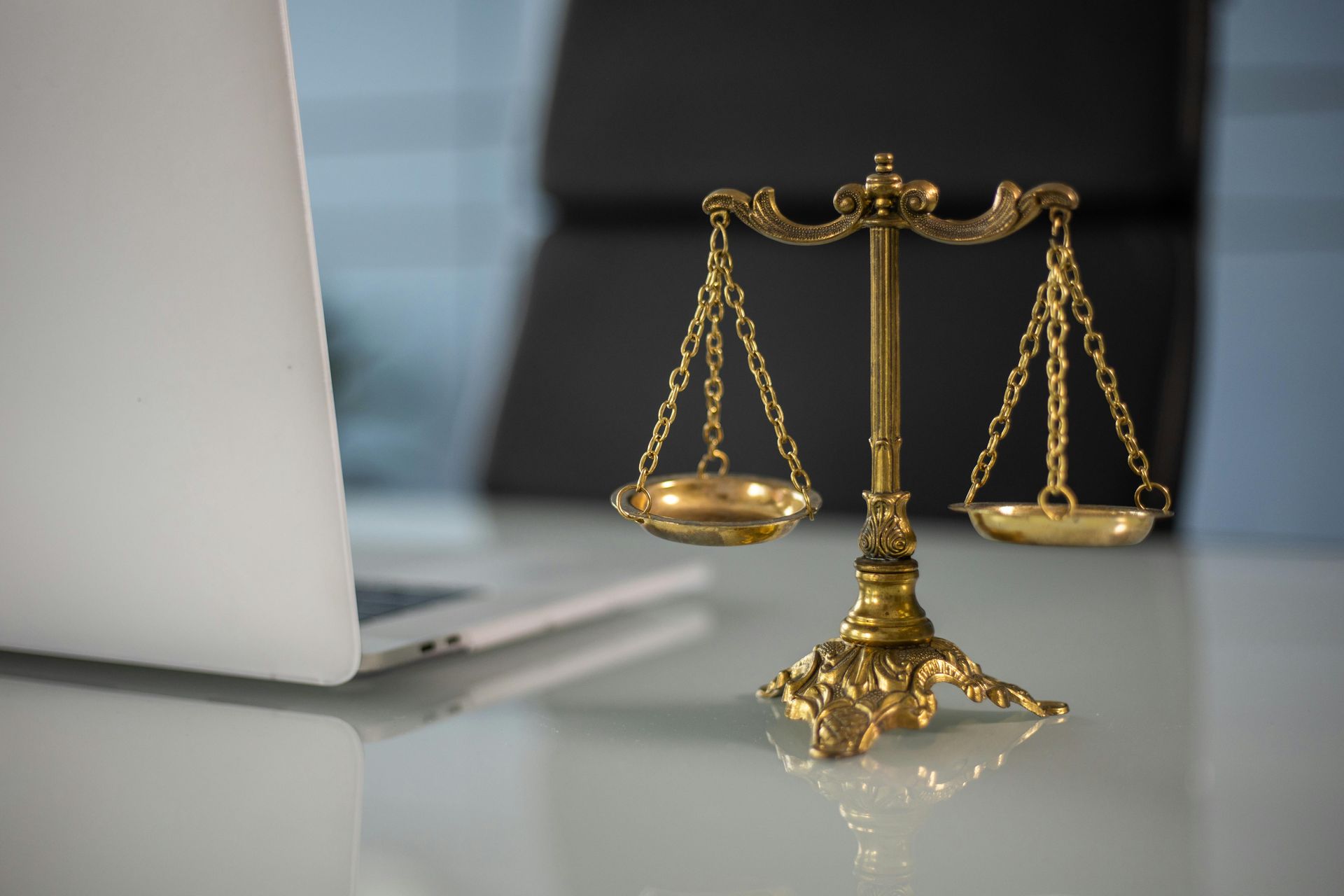By Lauren Rios
•
October 8, 2024
When a loved one dies, their estate will need to go through an administration process before their assets can be distributed to their beneficiaries or heirs. If your loved one died with a living trust, their trust estate will go through what we call a "trust administration." If your loved one died with just a Will or no Will, then depending on the value of their assets, their estate may need to go through a formal probate proceeding before their assets can be distributed. While every probate is different, every personal representative or executor can expect the following to occur in a probate proceeding: Gather information about the decedent and their assets; Hire an experienced California probate attorney to assist with preparing and filing the Petition for Probate; Provide Notice of Petition to Administer Estate to all Will beneficiaries or decedent's heirs (if there is no Will); Publish Notice in the local newspaper; Attend the hearing on the Petition for Probate and await Letters of Administration or Letters Testamentary that grants the Administrator or Executor the authority to manage the decedent's estate; Once Letters are obtained, provide Notice to Creditors to start the clock on the time to make any claims against the estate; Marshall the decedent's assets and prepare an Inventory and Appraisal for the appointed probate referee; Pay any debts of the estate; Sell estate assets, if necessary; Obtain approval from the Court to distribute assets to the decedent's beneficiaries or heirs. FREQUENTLY ASKED QUESTIONS WHAT RULES AND LAWS GOVERN A PROBATE PROCEEDING? A probate proceeding will be governed by the laws set forth within California Probate Code Division 7. Administration of Estates of Decedents ( PC 7000 - 12591 ). Effective January 1, 2000, the Judicial Council of California adopted “ TITLE SEVEN. Probate Rules ” to implement the purpose of the Probate Code. The Probate Rules apply to every action and proceeding to which the Probate Code applies. Additionally, local courts also have authority to provide local rules for practice and procedure in probate matters. Oftentimes, local courts will have their own local court forms that must be filed in the probate proceeding. Check your superior court website for local rules. For all probates, it is crucial for the personal representative and his or her attorney to follow not only the California Probate Code, but also the California Rules of Court and local rules. WHICH CALIFORNIA COUNTY SHOULD I FILE THE PROBATE PETITION TO GET STARTED? In order to file the Probate Petition, the proposed representative or nominated executor must determine which Court has jurisdiction over the matter. “Jurisdiction” means the power of a court to hear and determine proceedings. This means a court's authority to try the case before it. Under Probate Code 7050, the Probate Code grants the probate department within each Superior Court of California exclusive subject matter jurisdiction of proceedings concerning the administration of decedents' estates. As far as venue, the Probate Petition must be filed in the California County where the decedent either (1) was domiciled at the time of his or her death, or (2) left property in California at the time of death. A person's domicile is the one location with which, for legal purposes, the person is considered to have the most settled and permanent connection, the place where the person intends to remain and to which, whenever he or she is absent, the person has the intention of returning. A prime example of (2) is when someone owns real property in California but moves to another state to live out their final days. If that decedent left real property, for example, in San Mateo County, but was domiciled in Florida, the proposed personal representative may be filing two probate petitions: one in Florida where the decedent was domiciled and one in California where the decedent left real property. WHAT FORMS OR PLEADINGS DO I NEED TO USE TO FILE THE PETITION FOR PROBATE? The Judicial Council of California has adopted mandatory forms to be used in the probate proceedings. Generally, to file the Petition for Probate, the proposed personal representative must complete, sign and submit the following forms: DE-111 Petition for Probate ( here ) DE-121 Notice of Petition to Administer Estate ( here ) DE-140 Order for Probate ( here ) DE-147 Duties and Liabilities of Personal Representative ( here ) DE-147(S) Confidential Supplement to Duties and Liabilities of Personal Representative ( here ) HELPFUL TIP : Check your local court rules for any local forms that must be filed simultaneously with the Petition. Some counties will deny the Petition for Probate if not all forms (including local forms) are timely filed before the initial hearing on the petition. Hiring an experienced probate attorney will reduce the risk your Petition will be rejected or denied. I FILED THE PETITION FOR PROBATE - NOW WHAT? So, you and your attorney filed all the necessary state and local forms to initiate the Probate. Great job! Remember, you are not the personal representative or Executor at this point. You need to wait for the hearing to actually be appointed by the Probate Judge. So, when does that happen? Well, upon filing the forms, the county clerk would have assigned the date and time of the initial hearing on DE-121 Notice of Petition to Administer Estate. You, as Petitioner, have a duty to notice all interested parties of the hearing so that they have an opportunity to be heard at the hearing (including contesting your appointment). So how do you notice interested parties? You or your attorney must timely serve the completed DE-121 Notice of Petition to Administer Estate (which will have the date and time of the initial hearing) to all beneficiaries listed within the Will and/or the decedent's heirs (if no Will). You may also include a copy of the Petition for Probate in this mailer (but it is not required). Once you send out the notice to each beneficiary or heir, you must file a Proof of Service with the Court. Check your local county rules for the appropriate Proof of Service form and procedure. If you suspect a heir might contest your appointment, should you fail to give them notice? ABSOLUTELY NOT!!! Your petition for appointment will be denied if you fail to give notice to all interested parties. HELPFUL TIP : You, as the proposed personal representative or nominated Executor CANNOT take any action on behalf of the estate, including but not limited to, selling or distributing estate assets, until AFTER the Judge confirms your appointment AND Letters of Testamentary (if there is a Will) or Letters of Administration (if no Will) are issued to you. Even then, your ability to take actions on behalf of the estate are limited. You need to speak with an experienced probate attorney to confirm what actions you may actually take. I'VE SEEN "DEATH NOTICES" IN MY LOCAL NEWSPAPER. DO I NEED TO DO THAT? Yes, before the initial hearing , the Notice of Petition to Administer Estate "shall be published in a newspaper of general circulation in the city where the decedent resided at the time of death, or where the decedent's property is located if the court has jurisdiction under [Probate Code] Section 7052. If there is no such newspaper, or if the decedent did not reside in a city, or if the property is not located in a city, then notice shall be published in a newspaper of general circulation in the county which is circulated within the area of the county in which the decedent resided or the property is located." PC 8121. This publication requirement is an important step because it puts creditors or other interested parties on notice of the probate so that they can participate if needed. HELPFUL TIP : Probate Code section 8121(a) sets out the minimum number of publications and timeline between each publication. It is important to work with an attorney who is familiar with this process so you don't risk your petition being denied for failure to meet the publication requirements. WHAT HAPPENS AT THE INITIAL HEARING? So, it's the day of the initial hearing. You and/or your attorney will need to attend the hearing in person (or virtually if allowed by the Court). There will be at least a dozen or more matters on calendar. So, plan to wait a little while until your matter is called by the Judge. You'll know your matter is called when the Judge reads, "Estate of [name of decedent]." At this point, you will walk to the table in front of the public seating area (if attending in person) and introduce yourself (e.g., Good Morning, your Honor, Jane Smith, Petitioner." The Judge will thank you for your appearance and indicate if there are any defects in your petition. If you've worked with an experienced probate attorney, there shouldn't be any defects that couldn't be resolved prior to the hearing date. If there are defects in the Petition, the Judge will continue your hearing to a future date to give you time to "cure" the defects. Even if there aren't any defects, the Judge will ask if anyone is present to object to your formal appointment. If not, the Judge will grant the Petition, sign the Order for Probate and indicate that you should file the Letters of Administration (or Letters Testamentary) with the clerk's office. Congratulations - you've made it over the first hurdle! HELPFUL TIP : Courtroom Decorum - the dignity of the Court is to be respected and maintained at all times. If you attend the hearing, always be prompt (i.e., arrive at least 15 minutes before the calendar begins), wear appropriate clothes (think "important business meeting attire"), turn off your cellphone (not just silenced), stand when the Judge is called out from his/her chambers, do not talk when court is in session, be courteous to the Judge and all courtroom staff when your matter is called ("yes, Your Honor" or "no, your Honor"). HOW DO I PROVIDE NOTICE TO CREDITORS? Once "Letters" have been issued, you have a statutory obligation to notice known or reasonably ascertainable creditors of the probate proceeding. Why? Well, they need a chance to make a claim against the estate, if any. Typical creditors will be credit card companies, home mortgage lenders, utility companies, or funeral homes (i.e., service providers that didn't get paid before the decedent died or shortly thereafter), or those persons who may have a potential claim against the decedent on account of something that happened during the decedent's lifetime. To provide notice, complete DE-157 and mail or personally serve that form, together with a copy of a blank Creditor's Claim form , to each known or reasonably ascertainable creditor. Creditors have four months after Letters are issued or 60 days the notice was mailed or personally delivered to them, whichever is later, to file a claim with the court clerk AND mail or deliver a copy to the personal representative of the estate. If they don't, their claim is deemed "untimely," and they will need to petition the court for permission to file a late claim. HELPFUL TIP : You are not required to make a search for possible creditors. You are required only to notify creditors who are actually known either because information (written or verbal) comes to your attention during administration or the creditor demands payment during administration. However, you cannot ignore information that may shed light on possible creditors (e.g., ignoring a folder marked "unpaid bills"). WHAT IS MY DUTY WITH REGARDS TO THE INVENTORY AND APPRAISAL? One of the principal duties of the personal representative is to take possession or control of all of the decedent's real and personal property that is to be administered in the estate. In doing so, the personal representative will need to obtain an estate EIN (or, tax ID) to collect assets. The personal representative has no authority to collect property that is not part of the estate, such as joint tenancy property, insurance proceeds that are not payable to the estate, and custodial Individual Retirement Accounts not payable to the estate and not funded by contributions from the decedent. The personal representative is also responsible for completing and submitting the Inventory and Appraisal to the probate referee (i.e., licensed appraiser assigned by the Judge at the initial hearing) within four months after Letters are issued. The inventory and appraisal serves as a record and list of the decedent's property that is to be administered and distributed. It also: (1) informs the heirs and devisees of the nature and worth of assets in the estate; (2) advises the estate's creditors of the amount and availability of estate assets; (3) assists the personal representative in identifying and valuing assets subject to estate taxes; and (4) notifies the Court of the extent and value of the assets to determine bond amount, if necessary, and the amount of statutory compensation due to the personal representative and attorneys for their ordinary services. HELPFUL TIP : The inventory and appraisal is a very detailed document that should be completed with the assistance of an experienced probate attorney. WHEN SHOULD I PAY DEBTS OF THE ESTATE? Debts of the estate may be paid in several methods during the course of administration. The personal representative may pay, but cannot be required to pay, debts of the decedent without court authorization as they arise or become known. Some expenses of administration are commonly paid as they accrue, such as newspaper publication, the bond premium, filing fees, and probate referee's fees. However, claims against the estate that are debts of the decedent must follow the claims process (remember the Creditor Claim process discussed above) and even after the claims are allowed by the personal representative and approved by the court, they are not required to be paid until the court explicitly orders payment, generally at the first account made more than four months after letters were first issued to a general personal representative. The personal representative generally pays the estate debts from estate assets in his or her possession. If there is insufficient cash from the estate, estate assets can be sold to satisfy debts. DO I HAVE THE AUTHORITY TO SELL ESTATE ASSETS? A personal representative acting with full authority under the Independent Administration of Estates Act (IAEA) has the authority to sell estate real or personal property under independent administration procedures. The representative acting with limited authority has the authority to sell personal, but not real, property of the estate under independent administration procedures. Even those personal representatives with full authority under the IAEA need to provide interested parties with a Notice of Proposed Action (NOPA) if they want to sell real property, for example. The interested parties have a certain period of time to object or consent to the proposed action. Alternatively, interested parties may waive notice of proposed action in which case the personal representative may take action without needing to provide parties with the notice. HELPFUL TIP : Bear in mind that a personal representative with full authority under the IAEA may always opt into a Court-supervised process, which may be desirable with contentious beneficiaries. HOW DO I CLOSE THE PROBATE AND DISTRIBUTE ESTATE ASSETS? The personal representative may file a final account and petition the Court for distribution once the estate is in a condition to be closed. How do you know if the estate is in a condition to be closed? Well, what the Court wants to see in this petition is All notices have been sent according to the Probate Code, Debts and taxes have been paid, The court is provided a final accounting of estate assets (although this can be waived by interested parties), There is a plan for distribution to the beneficiaries or heirs, and The amount or statutory compensation for the personal representative and his or her attorney. California law allows both a Personal Representative and the attorney for the Personal Representative to take a fee (referred to as a statutory fee) for ordinary services, calculated as a percentage of the appraised value of the estate property. The formula for calculating the fee is as follows: 4% of the first one hundred thousand dollars ($100,000), plus 3% of the next one hundred thousand dollars ($100,000), plus 2% of the next eight hundred thousand dollars ($800,000), plus 1% of the next nine million dollars ($9,000,000), plus ½ of 1% of the next fifteen million dollars ($15,000,000). For all amounts above twenty-five million dollars ($25,000,000), a reasonable amount to be determined by the court. Mortgages or other debt obligations are not considered in computing the fee base. HELPFUL TIP : In most instances, a hearing will be set on the petition for distribution. However, in some counties like San Mateo County, the personal representative may submit the petition for distribution on an ex parte basis, meaning that they don't need to wait for a hearing set months out. The Judge will review the final petition and make a ruling within days, if not the same day as filing. We hope you found these probate FAQs helpful. The last thing you should know is that you don't have to do this alone. Lauren Rios is an experienced probate attorney who can help you navigate the probate process. Disclaimer: The above is provided for educational and informational purposes only, and should not be construed as legal advice or as an offer to perform legal services on any subject matter. The content of this web site contains general information and may not reflect current legal developments or information. No attorney-client relationship is established by viewing the information posted on this website.










